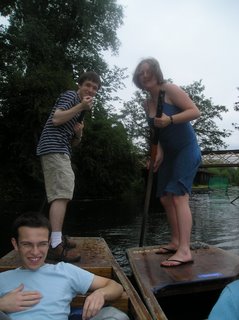Newman on education - the good and the useful
I plan to update news sometime soon. For now, here's some thoughts from Cardinal Newman. Newman's thoughts are in the context of the debate over whether universities should offer a liberal education (one which teaches a broad range of arts and sciences aimed at the general intellectual and personal development of the student) or a professional education (one which aims to transmit particular technical skills needed to carry out a particular profession), but I think they apply not only to educational debate but also to questions of what values society as a whole should adopt:
I say, let us take "useful" to mean, not what is simply good, but what tends to good, or is the instrument of good; and in this sense also, Gentlemen, I will show you how a liberal education is truly and fully a useful, though it be not a professional, education. "Good" indeed means one thing, and "useful" means another; but I lay it down as a principle, which will save us a great deal of anxiety, that, though the useful is not always good, the good is always useful. Good is not only good, but reproductive of good; this is one of its attributes; nothing is excellent, beautiful, perfect, desirable for its own sake, but it overflows, and spreads the likeness of itself all around it.
(John Henry Newman, The Idea of a University (1858) - Discourse VII, pages 163-4)
Newman's book was provocative at the time, asserting universal values of truth, goodness etc within his Catholic framework of understanding against a more utilitarian society which valued economic productivity and relegated such values to a subjective private sphere of life. Newman's ideas, though by no means unique to him, would seem even more radical today (sceptics would call them "reactionary"). For instance, he rightly points out that the idea of a "university" was originally that of an institution which teaches all branches of human knowledge and is thus "universal" in its intellectual scope. Such an assertion would be controversial in the current climate of academia, which tends to doubt the possibility of ascertaining definite knowledge about anything, let alone finding a unity between knowledge in different fields.
Whilst we need humility about the limitations of human knowledge, scholarship ought to be motivated by a conviction that there is an objectively real world governed by objectively real principles, moral and spiritual as well as physical. Whilst we cannot attain to universal knowledge in the sense of exhaustive knowledge of everything, a belief that in the end everything does hold together, even if we are often perplexed as to how this is so, greatly facilitates the process of dialogue between scholars of different fields, hopefully also including people outside academia who often have a more direct knowledge of the way things are.
The Idea of a University is one of the many books I like without having properly read. Thus I won't commit myself to agreeing with everything it might say. If you're interested, the entire text of the book is online here from the Newman Reader.







